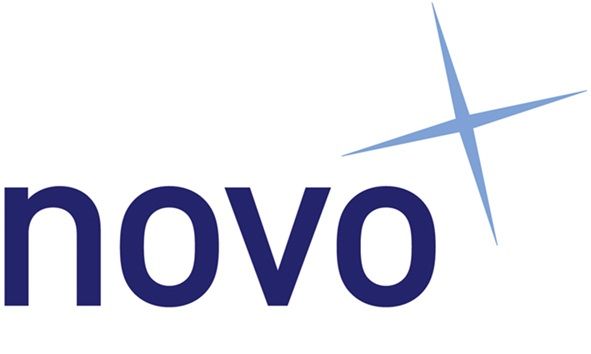Wave of flexible jobs would boost gender equality

Hundreds of thousands of new flexible jobs could be created if employers were more transparent about job details, with women likely to benefit the most, according to landmark research by the world’s largest job site Indeed and the Government-backed Behavioural Insights Team (BIT).
BIT analysed more than 780,000 job postings on Indeed.co.uk by 100,000 employers and found that prompting employers to clearly advertise flexible working options led to a 20% increase in the number of jobs advertised as flexible.
Its report concludes that if these ‘nudges’ were adopted on Indeed alone it would add at least 174,000 flexible jobs to the UK economy in a year.
“The research – which analysed nearly 20 million job applications and is thought to be the largest of its kind conducted in the UK – also showed that jobs with clear flexible working options could attract up to 30% more applicants than those that did not.
An accompanying study by BIT found that men and women are equally attracted to adverts specifically advertising flexible work but greater transparency of flexible working arrangements would likely disproportionately benefit women, as – pre-pandemic – women were twice as likely to work flexibly*[1].
Women are also more likely to have lost their job due to Covid-19*[2] and new job postings data from Indeed show occupations that attract more women than men have recorded the heaviest declines in openings since the pandemic: food preparation & service (-83% since 1 February 2020*[3]), beauty & wellness (-82%) and hospitality & tourism (-77%).
Despite the declines, the female employment rate remains historically high (72%)[4] but still lags male employment (78.4%)[5] and while a new wave of flexible roles could drive labour market participation amongst both men and women, the impact of such roles would be felt more strongly by women.
Minister for Women & Equalities, Liz Truss, said: “Our commitment to flexible working is based on our desire to open up employment opportunities to people regardless of their sex or location. The shift for many people to work from home during the pandemic has changed mindsets and now is a chance to seize the opportunity of making flexible working the norm, rather than something employees have to specially request.
“The fact is that for many jobs there are invisible restrictions that hold people back – like the need to live in high-cost accommodation close to the centre of cities or maintain working arrangements that are very hard to combine with family or other responsibilities.
“We now have the chance to break down these barriers and boost opportunities for everyone.”
Deepa Somasundari, senior director of strategic projects at the global job site Indeed, said: “We constantly test our products and use those learnings to build a more equitable system for those looking for work and in doing so make the hiring process fairer. Our work with the Behavioural Insights Team led us to make changes in the UK and internationally that help fulfill our mission of helping all people get jobs.
“We know people value flexible work opportunities and as a result of the pandemic, there is increasing expectation that jobs are designed with this in mind. For employers, this means reconsidering the notion that flexible work is a benefit and instead acknowledging it as a better way of working that could positively impact the lives of women and therefore society as a whole.”
Minister for Women, Baroness Berridge, said: “We continue to see the benefits of flexible working, now more than ever. These findings add to existing evidence showing how both men and women stand to benefit from working from home and returners programmes.
“Our work with Indeed has proven how much benefit there is for employers in advertising flexible roles and how doing so will help to normalise flexible working. Everyone can benefit from flexible working, but the research shows that for women it can be especially important. Flexible working can be a vital tool at the disposal of employers, helping to achieve workplace equality.”
David Halpern, CEO of The Behavioural Insights Team, said: “This is an amazing trial, and a great credit to our partners in the Government Equalities Office and Indeed, the global jobsite. It’s a huge result in several ways. We think it may be the biggest experimental social policy trial ever published – certainly in Britain, and perhaps in the world. It also had big effects. It boosted the number of jobs advertised as flexible by around 17%, and in turn, boosted the number of applicants by at least 20%. It’s also a particularly important result in the context of Covid, and a changed world of work.”
Pawel Adrjan, head of EMEA research at the global job site Indeed, said: “Covid-19 turned the labour market upside down and today job vacancies are -37% below their pre-pandemic trend. While no sector has been immune to the virus some have fared worse than others with job postings drying up much faster and deeper in customer-facing occupations that typically attract more women than men.
“Interest in flexible work was growing before Covid-19 before accelerating over the past year and now that the vaccine program offers hope of a jobs recovery it remains to be seen how employers respond to these changes and address widening inequalities.”
Further information: about the test
In 2017, the Government Equalities Office (GEO) commissioned BIT to deliver a three-year programme of work – the Gender and Behavioural Insights (GABI) programme. The programme includes the running of trials to design and test interventions to improve gender equality in the UK.
As part of this programme, BIT partnered with job site Indeed and Harvard Business School, to test a behaviourally-informed intervention to encourage employers to advertise more jobs with flexible working options.
The aim of the trials was to test the impact of introducing a prompt in the job listing template which gave employers the option to advertise jobs with a choice of flexible working options, compared to business-as-usual with no such prompt.
They were presented with nine different options ranging from flexitime to job sharing. Selected options would then add an additional list of flexible working arrangements to their job posting thus offering a more prominent way to identify flexible options.
Round one
The first randomised controlled trial involved over 200,000 job postings and over five million job applications on Indeed.co.uk to assess the impact on a) the % of job postings mentioning flexibility options and b) the number of job applications flexible roles received.
Analysis throughout 2020 found that by implementing a prompt to employers to consider whether jobs could be offered flexibly led to 20% more jobs being advertised with flexible working options. And, when job adverts offered flexible working, the study showed that they attracted up to 30% more applicants.
Round two
The second round of testing looked at the impact of additional prompts and was performed on a sample size of almost 500,000 job ads, involving over 14 million job applications.
Additional prompts viewed by employers highlighted that flexibility is a legal right in the UK, and that flexibility is gender inclusive, given both men and women desire it.
The main results were replicated to a similar degree on flexible job postings: 20% flex adoption (Round 1) vs 16.5% flex adoption (Round 2). When it came to applications, the main result was a little weaker and started from a higher baseline: 30% increase in applications (Test 1) vs 19% (Test 2). The main conclusion we can take from Round 2 is that the results from Round 1 replicate and can be trusted.
[1] Megatrends: Flexible working, CIPD (2019)
[2] Covid-19 and gender equality: countering the aggressive affects, McKinsey (2020)
[3] The impact of Coronavirus on UK job postings through 29 January, Indeed (2021)
[4] Female employment rate Sep-Nov 2020, ONS (2021)
[5] Male employment rate Sep-Nov 2020, ONS (2021)
Originally published on The HR Director, https://www.thehrdirector.com/business-news/flexible-agile-working/new-wave-of-174000-flexible-jobs-would-boost-post-covid-gender-equality/












